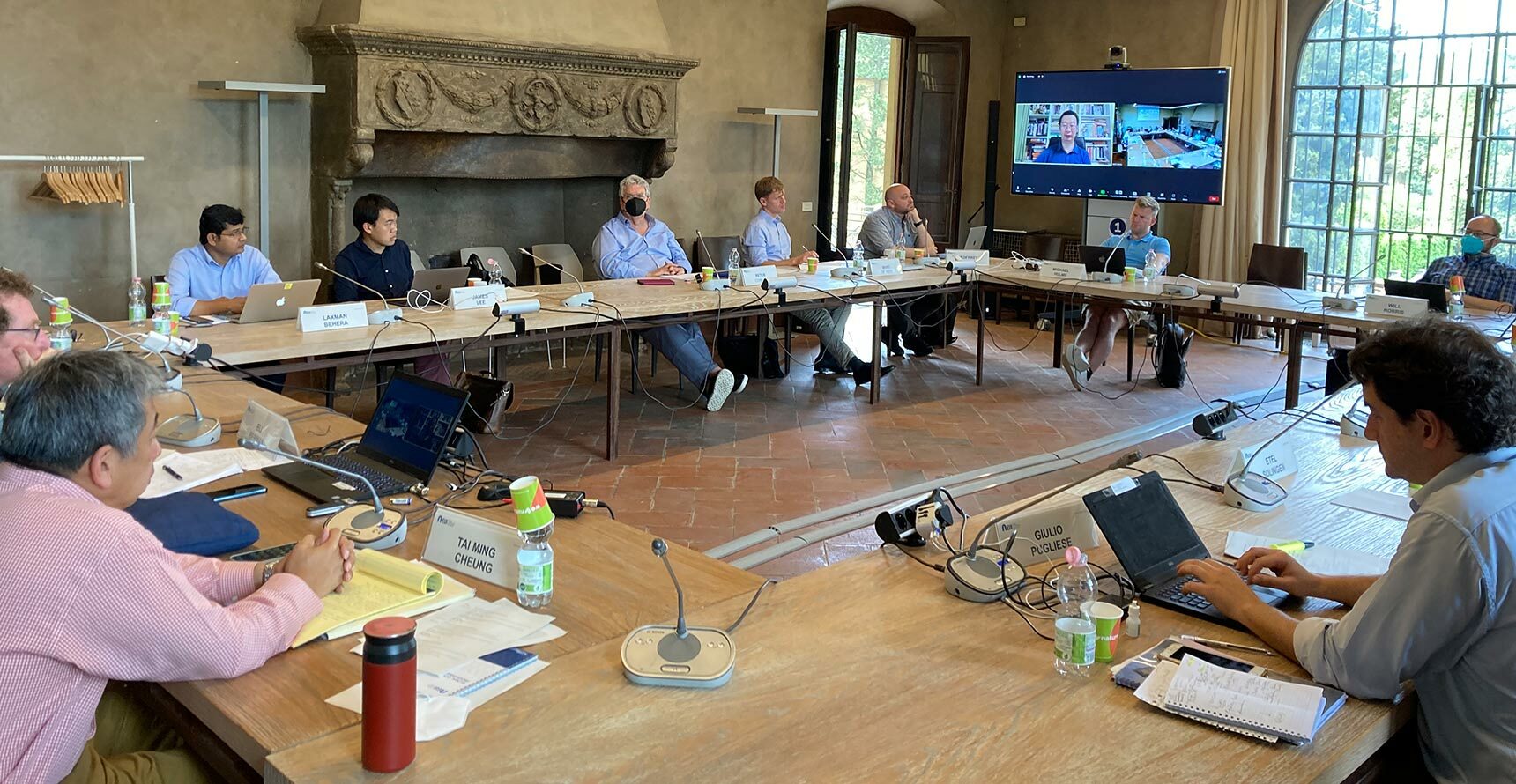Florence Conference Highlights Role of Economic and Technological Conflict

When Marc De Vore, a senior lecturer at St. Andrews University in Scotland, first heard that Russian tanks had crossed the border into Ukraine, he found himself consumed by the news. An expert in international security and defense policy, De Vore set aside the book he was writing and wrote up a plan for how countries could help Ukraine, an exercise that led to his intimate involvement in advising the U.K., U.S. and other governments about their strategies to support Ukraine.
“This conflict’s unpredictability—confounding experts in government and think tanks—combined with the stakes involved have spurred an incredible level of collaboration between academia and government,” says De Vore. “There’s a lot of ‘out-of-the-box’ thinking going on across different disciplines.”
To harness the renewed appetite for creative partnerships between academics and policymakers, from May 25-26, Asian, European, and American political scientists, economists, and security specialists met at the European University Institute in Florence, Italy for a workshop hosted by the UC Institute on Global Conflict and Cooperation (IGCC) to explore the evolving economic, political, and technological implications of the Russia-Ukraine conflict, especially among the great powers.
Marc De Vore and IGCC director Tai Ming Cheung were among the dozen participants at the workshop, which is itself part of a longer-term IGCC initiative on geoeconomics and great power competition. “Great power competition as an issue wasn’t on the academic radar five years ago, and to the extent that it was, it was focused on the military dimension,” says Cheung, a professor in the School of Global Policy and Strategy at UC San Diego. “What makes this [research program] special is that it is re-conceiving the notion of conflict as something much broader, involving economic and technological dimensions of state competition, domestic politics, and hard security.”
The Russian war in Ukraine, which is now the longest conventional war since the Korean War, has played a stark role in this evolving thinking. It has stunned academic experts and prompted massive policy shifts that usually take governments years to negotiate. And it is showing with painful clarity that conflict today goes well beyond physical battlefields, encompassing economics and industry and affecting myriad countries far from where the actual fighting is occurring.
“Ukraine upended decades of scholarship on how countries fight and avoid fighting wars, almost overnight,” says Cheung.
And whereas the world moved from the Cold War partition between U.S. and Soviet spheres of influence to a unipolar world where the United States reigned supreme, the last decade has seen the rise of China, and now Russia’s rapid decoupling from the West. The world, in other words, is moving towards bifurcation once again.
Gathered amidst the idyllic green hills of Fiesole overlooking downtown Florence, conference participants considered what these profound global shifts mean for global security and economy stability, and whether the world is entering a new, defining chapter in history, or whether there are lessons from the past that apply to current conflicts.
“What we are seeing today is a reconfiguration of power that will last a long time,” says Cheung, “and have significant implications for decades. But there is no perfect historical model to pull lessons from. Economic statecraft by the U.S. is still primarily a legacy of the Cold War. The paradigm is outdated and needs refreshing.”

From left to right: Tai Ming Cheung, James Lee, Lindsay Morgan, Etel Solingen, Barry Naughton, Marc De Vore, Marie Thievos Stewart, Peter Cowhey, Geoff Hoffman, Laxman Behera, and Eli Berman.
The IGCC research network on geoeconomics, innovation, and national security conducts academic research, education, and international engagement covering the political economy of security, the reform of the U.S. defense acquisition system, the role of industrial policy on national security issues, and the national security implications of foreign direct investment. To learn more about IGCC work on geoeconomics, innovation, and national security, see here.
Read a roundtable discussion on the war in Ukraine held at this workshop here.
Listen to IGCC affiliate Christina Schneinder describe how the war in Ukraine is impacting European politics